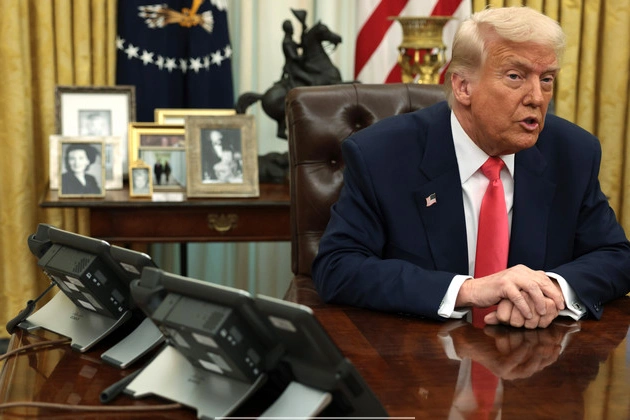
Reforming the Department of Justice: Challenges and Turmoil Under Trump's Administration
The Unprecedented Changes in the Department of Justice
Amidst the first week of the Trump administration, the Department of Justice witnessed a flurry of changes that left career lawyers and staff feeling besieged. President Donald Trump’s acting attorney general initiated a series of abrupt actions, including the dismissal of numerous prosecutors involved in cases against Trump.
These moves, reflecting Trump’s campaign promises to overhaul the department, caught many by surprise. One DOJ career employee described the atmosphere as akin to a ‘non-violent war,’ expressing shock at the lack of power or control over the situation.
Disruptive Shifts and Demoralization
The blanket pardons extended to Jan. 6 rioters and the significant alterations in DOJ’s prosecution policies added to the demoralization among staff. Of particular disruption were the firings of special counsel Jack Smith’s attorneys, transfers of experienced national-security prosecutors, and the directive for Jan. 6 prosecutors to submit their files for special review.
The reassignments of top career leaders to less desirable roles further fueled concerns within the department. Notably, the dismissal of prosecutors without options for reassignment heightened tensions, leading to what some described as a ‘demoralizing purge’ within the DOJ.
Turmoil and Policy Shifts
Acting Attorney General James McHenry’s decision to dismiss prosecutors from the special counsel’s team raised questions about loyalty and alignment with the President’s agenda. Additionally, new personnel policies, such as the mandatory five-day office attendance, exacerbated the sense of turmoil among DOJ employees.
Furthermore, the government-wide directive on probationary employees instilled fear and uncertainty among those lacking civil service protections. The probation announcement, in particular, intensified anxieties within the ranks.
Challenges at the FBI and Controversial Moves
At the FBI, the redirection of Joint Terrorism Task Forces for immigration enforcement drew criticism from agents concerned about neglecting national security priorities. The realignment of resources sparked worries about overlooking significant threats due to divided focus.
Within DOJ, acting U.S. attorney Ed Martin’s public statements endorsing controversial pardons and adopting aggressive policing tactics stirred controversy. Martin’s rhetoric, reminiscent of Trump’s calls for tough law enforcement measures, raised doubts about the approach’s effectiveness and potential repercussions on prosecutions.
Resilience and Departures
Despite the upheaval, only a few career lawyers have departed so far. Each government employee faces a critical decision on how to uphold their principles effectively, whether by staying within the system or leaving with a vocal stance against perceived injustices.
As the Department of Justice navigates these turbulent times, the enduring commitment of its staff to upholding the rule of law remains a beacon of hope amidst uncertainty.















